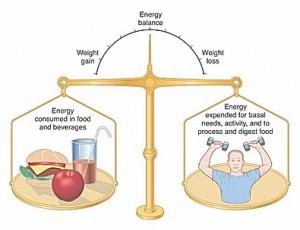
Obesity & Cognitive Behavioral Training (CBT)
Obesity, a term being utilized more frequently in today’s world, is turning into a global epidemic. Over two-thirds of adults in the United States are overweight or obese, and children are rapidly joining the ranks. Granted, there are studies that show genetics as possible precursor to obesity as well. Generally however, if obesity is not caused by a medical condition, it is a result of nutrition, lifestyle, medications, and/or behavior. Studies have repeatedly shown that any effective treatment for obesity must contain a cognitive behavioral approach in order for success to be long term and permanent.
Obesity is an anatomical and biological result of energy being consumed at a higher rate than it is being expended. It has come to be classified as a chronic medical disease; obesity can and will, if not treated, lead to other health complications such as high blood pressure, heart disease, diabetes, sleep apnea, congestive heart failure, gallstones, gout, etc. Our daily diet contributes to our well-being and not-so-well-being… the foods we consume provide us with the necessary nutrients required for survival. If we consume unhealthy foods or fill our daily diets with high-sugar and high fat content foods, we will begin to accumulate excess amounts of body fat that can only be counteracted with physical activity. If we also continue to allow social media to influence our personal images of self, we will only place ourselves into a downward spiral of negative thoughts that lead to more unhappiness and more unhealthy habits. Treatment for obesity will only be successful if a long-term plan is created. Set reasonable goals that you will be able to achieve and feel positive about. Your main goal should always be your health. Your ideal weight can always be achieved but your health should be the initial goal.
Weight loss alone is not difficult to achieve; weight loss maintenance however, is one of the most difficult objectives of the entire endeavor. In order to lose excess weight, a deficit must be created; energy expended must be greater than energy consumed, plain and simple. In order to maintain however, lifestyle and behavior changes are pertinent for success. Cognitive Behavioral Therapy helps the challenge by increasing motivation and providing the coping skills necessary to handle any lapses in a diet any and every person will experience along the journey.
Obesity can be overcome through Cognitive Behavioral Therapy and a personalized daily food schedule. Cognitive Behavioral Therapy sessions provide the education for long-term weight maintenance skills: Encouraging confidence by changing a person’s body image and their personal expectation of what their body image should be, based on social expectations; improving a person’s self-esteem and increasing personal self-worth; teaching stress management techniques to avoid breakdowns and bouts of “comfort-eating”; assisting in the setting of reasonable and attainable goals for weight loss and maintenance; encouraging an active role in the individual’s own health and life goals.
Do you feel as if you need to lose weight and don’t know how? Are you concerned about the effects of a weight-loss diet or increased physical activity? Are you worried about the direction your health is heading? Why not proactively do something about it? Change your behavior to change your life!!
Remember that the key to long-term success is behavior modification in baby steps and you will reach your health goals before you know it.
